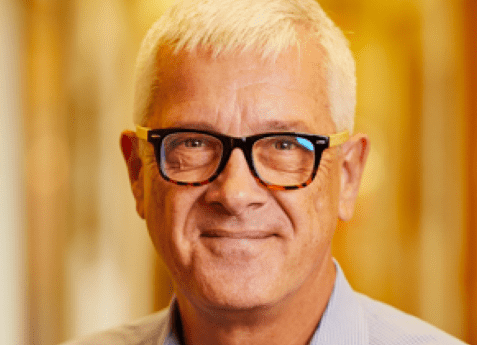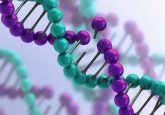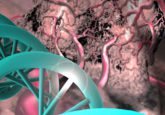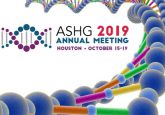Two minutes with: Leslie Biesecker on genetic exceptionalism

BioTechniques caught up with Leslie Biesecker, clinical and molecular geneticist from the National Human Genome Research Institute and President of the American Society of Human Genetics (ASHG) at their annual meeting in Houston (TX, USA; 15-19 October 2019) to discuss the issue of genetic exceptionalism and the importance of making genetics open to all.
A large focus of your symposium is addressing genetic exceptionalism. How do you think resolving the issue of genetic exceptionalism will benefit the wider field of life science and society as a whole?
My fundamental thesis, as I briefly touched on yesterday, is that success in genetics and genomics is when it becomes infused into every biologic discipline and every facet of medical practice. I think that exceptionalism acts as a barrier between where we are now and that vision. I want to break down that belief that we are somehow separate or apart or fundamentally different from other domains of science or other practices of medicine and healthcare so that genetics diffuses out. I believe that the more widely genomics and genetics are used, in both science and medicine, the more interesting work there will be for geneticists to do. Other people might feel that the way to maintain their domain is to keep it held in. I have the opposite view, which is that if it is free and more widely used, more people will benefit from it and there is more interesting work to do.
Beyond the eradication of exceptionalism, what other challenges do you think are currently faced by genomics and genetics?
We often talk about it in terms of genetic and genomic literacy, among the public, non-genetics researchers and non-genetic health care practitioners. I think we need to be careful about that, as these are groups of people who are doing great work in different domains. Therefore, it should not necessarily be our mission to make them all be geneticists – that is a fool’s errand. What we want to do is make genetics useful to them for what they want to do. That is different from making them geneticists. What we have to do is make the technology, the approaches and the thinking; user friendly, accessible and available to people so that they can do what they want with it and we can help them do that. I think it is a very positive attitude towards getting genetics and genomics out there and getting it broadly used.
- Expanded human reference genome reflects global genetic diversity
- ASHG 2019 highlights and updates
- Investigating the racial bias in genetic research
When you were starting out in your career, did you have any heroes or people that inspired you to go into the genomics field? Or was it just something that just naturally occurred for you?
When I first started out, I did not have a clue about genomics. I can remember going to that first meeting in Detroit in 1982, as I mentioned in the talk yesterday. At that stage of my education, I did not understand a lot of what they were saying, but it was clear that this was an exciting and dynamic field where people were doing cool stuff, and I wanted to be part of that. From this meeting, as well as what I was seeing in my own medical training in the 1980s, I could see that the issue of children with multiple congenital anomalies (or ‘birth defects’) was a huge and poorly understood problem and that this could be an opportunity to do something interesting. This led me to set out to do clinical genetics.
I had a number of people who really helped me in clinical genetics such as Dr. Renata Laxova, who was a clinical geneticist at the University of Wisconsin–Madison (WI, USA), originally from The Czech Republic; Brian Hall, a clinical geneticist at the University of Kentucky (KY, USA) and Mason Bar who was at the University of Michigan (MI, USA). These are people who practiced purely clinical genetics because at that time, I thought I wanted to do something clinical. Then, as I was exposed to them, they helped me to recognize that there was a huge research opportunity there. That is when my career shifted from a clinical focus to a hybrid clinical—research focus. Now, I am 100% research and I only see patients as a clinical research activity. I do not do regular clinical genomics medical care.
The key thing that they showed me was that I could make a contribution to the scientific literature by doing projects with them. That planted that seed of, “I can identify a question, figure out how to address it and then I can write a paper that will tell people what the answer to this question or problem is.” That is something critical for any person who wants to get started in this discipline.
You mentioned in your address a meeting that occurred between the board of directors and the past presidents to come up with the strategic plan for ASHG and that it caused a hot debate. What was debated most fiercely at that meeting?
Unfortunately, I can’t go into the topics as it was formally a closed discussion. However, what I will say is that we were not just debating between things that we wanted to do and those we did not. The challenge for a society like this is that there are an innumerable number of good and valuable things that we could do. And the debate is how to prioritize those things. Like every entity, we have finite resources, and nearly infinite needs to serve. How you match the reality of limited resources to unlimited needs? That is our job and that is what that debate was about. What we have tried to do is move things into the top of the list and say these are the limited set of things that we have to focus our resources on for the next five to ten-year window. And in five to eight years, we will do it again. And we will debate all these topics and rank order them because the science is changing really fast. I think it is exciting. Some people feel it is unnerving because the ground rules keep changing. We have to alter how we respond as an organization to that changing landscape. I love how fast things change. Not everyone does but I think it is awesome. And it gives us new and interesting things to talk about every few years, which is great.
Check out the rest of our coverage from ASHG 2019 here.





